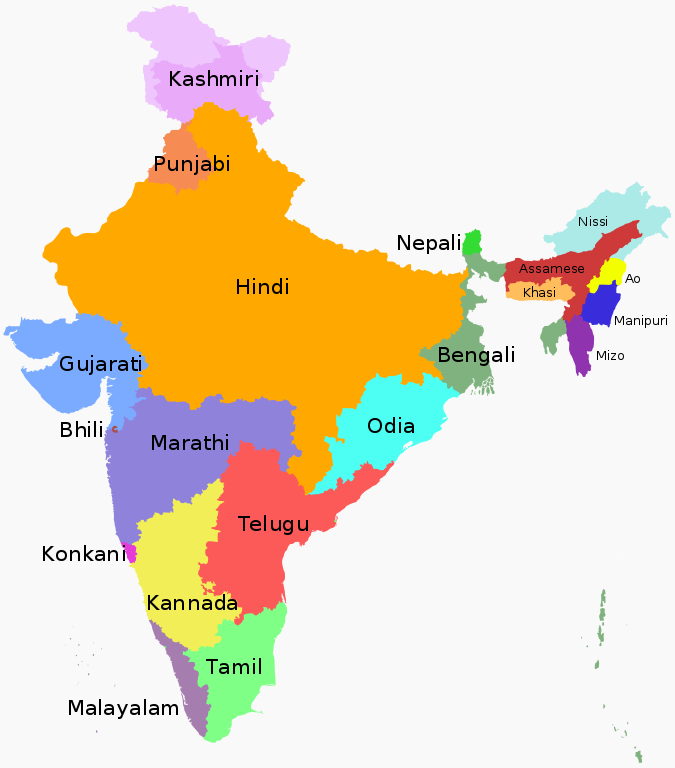-
3-minute read
-
24th October 2019
English Dialects: What Is Indian English?
English is an official language for many non-native English-speaking countries, including India, which has a dialect known as ‘Indian English’. And if you’re a student from India studying abroad, or a native English speaker who knows someone from India, you may have noticed differences between Indian and Australian English. But how does this affect your writing?
In this post, we cover some characteristics (and quirks) of this dialect.
What Is Indian English?
As noted above, the term ‘Indian English’ refers to the type of English spoken in India. Interestingly, English also unites North, South and East India, which are culturally and linguistically disparate in other respects.

(Image: Filpro/wikimedia)
However, unlike Australian English or American English, it is not usually considered a ‘standard’ dialect (i.e. a dialect with its own distinct rules). Rather, Indian schools and official organisations (e.g. the courts) tend to use British English spelling and grammar, especially in formal writing.
Nevertheless, Indian English increasingly has its own character. It is also important for storytelling, with Indian English literature a growing phenomenon. As such, it is worth looking at how it differs from other dialects.
Vocabulary Differences
Like any other English dialect, Indian English has its own vocabulary. Here are a few cases where it differs from American or Australian English.
|
Indian English |
American English |
Australian English |
|
Boot/Dicky |
Trunk |
Boot |
|
Cycle |
Bicycle/Bike |
Bicycle/Bike |
|
Chemist |
Pharmacy |
Pharmacy/Chemist |
|
Picture |
Movie |
Movie/Film |
|
Ladies’ fingers |
Okra |
Okra |
|
Brinjal |
Eggplant |
Eggplant |
|
Number plate |
License plate |
Number plate |
|
Accelerator |
Gas pedal |
Accelerator |
|
Footpath |
Sidewalk |
Footpath |
|
Rubber |
Eraser |
Eraser/Rubber |
|
Finger chips |
French fries |
Hot chips |
|
Biodata |
Resume |
Resume/CV |
Formal Words and Phrases
Many of the terms above are unlikely to appear in formal writing. But there are some formal Indian words and phrases that may look unusual if you are used to Australian or American English. These include:
Find this useful?
Subscribe to our newsletter and get writing tips from our editors straight to your inbox.
Subscribe to Beyond the Margins and get your monthly fix of editorial strategy, workflow tips, and real-world examples from content leaders.
- Prepone – If to postpone is to put something off, it shouldn’t be a surprise to learn that ‘prepone’ means ‘bring something forward’. This is now the common definition in India, but it originally had a different meaning.
- Doing the needful – Also common in official use, ‘do the needful’ is used to request that someone carries out a given task or goal.
- Pass out – Rather than falling unconscious, to ‘pass out’ means to graduate from college or university. This term is still used in British English in the military, police, and other public services, but not for regular education.
- Out of station – In India, this phrase simply means ‘out of town’. This term comes from pre-Independence India, when officers of the East India Company were posted to ‘stations’. When these officers were away from their duty stations, they were thus said to be ‘out of station’.
- Good name – Taken from a translation of a formal Hindi phrase, to ask for someone’s ‘good name’ is a polite way to ask their full name.
In addition, many other ‘Indianisms’ are common in conversation and less formal writing. It’s worth noting, though, that while these are fine in Indian English, they may not be clear if you are writing for a non-Indian audience.
To be certain you’ll be understood in other parts of the English-speaking world, then, you should submit your writing for proofreading. Our experts will ensure your writing matches your chosen dialect throughout.